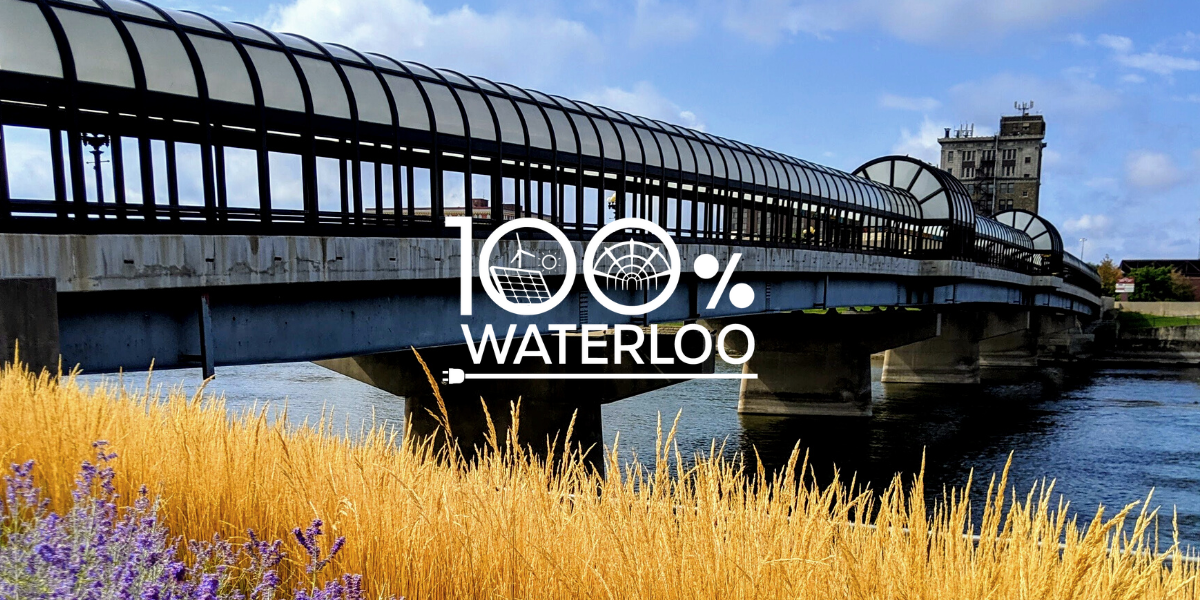WATERLOO — Tonight the Waterloo City Council voted unanimously to adopt a goal of reaching community-wide carbon-free electricity by the year 2035. With the resolution’s passage, Waterloo joins Des Moines as the second city in Iowa to commit to 24/7 carbon-free electricity, and the fourth nationwide.

Waterloo resident speaks in favor of the resolution during public comment the city council meeting
“We commend the City Council, Mayor, and local advocates who helped make Waterloo the latest city pledged to 24/7 carbon-free electricity,” said IEC’s energy outreach manager Jordan Oster. “This commitment puts Waterloo on the leading edge of meaningfully addressing climate change by ensuring electricity delivered to residents will come from fossil fuel-free sources by 2035. This goal is both aggressive and achievable—and will help Waterloo create new economic opportunities, provide affordable power, and build a more resilient community.”
The proposal was originally introduced during a council work session in late April by Councilmember Jonathan Grieder and was formally submitted for consideration by Mayor Quentin Hart. Since its introduction, community members have voiced support for the resolution, which embraces strategies to obtain carbon-free electricity for all homes, buildings, and businesses.
The commitment adds Waterloo to a growing list of U.S. cities to make a 24/7 carbon-free electricity pledge, including Des Moines, Iowa; Ithaca, New York; and South Lake Tahoe, California. Nationally, the Biden Administration has committed the U.S. government to procure 50% of electricity for federal facilities from 24/7 carbon-free sources by 2030 and to accelerate progress toward a clean electricity sector nationwide by 2035. On the international level, the United Nations-led 24/7 Carbon-Free Energy Compact includes notable signatories like Google and Microsoft, both with a presence in Iowa and a firm commitment to carbon-free energy procurement.
The goal of the resolution sets Waterloo apart from other types of clean energy goals typically seen at the local level. Waterloo seeks electricity that is carbon-free, instead of using less aggressive approaches that utilize carbon offsets seen with some 100% renewable energy pledges. This requires the energy sourced to the city to be from clean energy like solar and wind, around-the-clock, rather than the mix of energy from both fossil fuels and renewable sources that is available today. This will also result in the adoption of technologies to better manage, dispatch, and store clean energy resources.
“Local governments increasingly recognize the role they can play in accelerating the clean energy transition,” said IEC’s energy program director Kerri Johannsen. “It is exciting to see a growing number of cities making a genuine commitment to a clean energy system that protects their communities and is truly pollution-free. Together, Des Moines and Waterloo make up about one-fifth of MidAmerican Energy’s Iowa customer base and these communities are saying that they want a coal-free future.”

City Council unanimously approves community-wide 24/7 carbon-free electricity resolution
To meet the ambitious 24/7 carbon-free electricity target by 2035, the Mayor’s Office will collaborate with community stakeholders such as the utility provider, residents and businesses to establish benchmarking metrics that will allow city officials to monitor progress. The city will also utilize partnerships to expand public electric vehicle charging stations and to improve energy efficiency citywide. An annual report with a status update on these efforts will be delivered to the Mayor and City Council.






